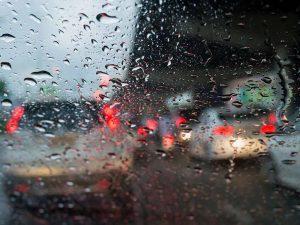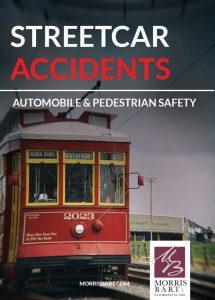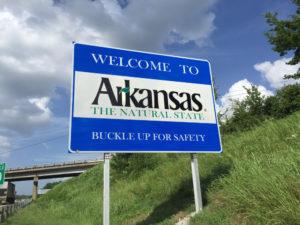
It should go without saying that wet weather driving can be dangerous. A recent analysis of available federal data shows that rain is the leading cause of weather-related driving fatalities in most states, including Alabama. Even in Alaska, rainy weather causes more fatal accidents than snow.
Unfortunately, as the wet weather continues to come, people grow accustomed to driving in it and stop taking as many precautions when doing so.
In Alabama, drivers should be extra careful when heading out on wet roads. This is especially true in the spring and summer when severe storms may occur. Always pay attention to the weather and drive carefully if you must venture out in it.
Here are a few tips and reasons to be extra cautious from our Alabama personal injury attorneys:
Risks for Wet Weather Driving in Alabama
Rain, storms, and other wet conditions can make driving more dangerous in several ways. Consider these factors while driving on wet roads and remember that other drivers are facing the same conditions and may not be as careful as you are.
Decreased Visibility
Rain on your windshield and rain in your line of sight both cause decreased visibility for drivers, making it harder to keep a proper lookout. Dangerous conditions or inattentive drivers are much harder to recognize in low visibility situations. This is even worse when sharing the interstate or highway with tractor-trailers and other large trucks that create significant spray.
You can reduce this effect by staying back from large vehicles and always ensuring your windshield wipers are in proper working condition. If you cannot seem to see even in light rain, you may want to check the rubber on your wiper blades.
Hydroplaning
Hydroplaning is a serious risk for auto accidents. When tires slide or skim along the water on the road, it is easy for drivers to lose control of the vehicle. The risk for hydroplaning is as high when it first starts to rain and soon after it has stopped as it is when it is pouring.
Too many people assume that hydroplaning can only occur during a heavy storm and ignore the risk during a light shower or after the rain has stopped.
Distracted and Reckless Driving
People accustomed to driving in the rain often under-estimate the dangers of driving in bad weather and fail to take proper precautions. Be alert not just for unsafe road conditions, but for careless drivers who are not taking proper care to avoid causing a collision.
Reduce speeds and avoid following too closely to the vehicle in front of you to allow for extra time to stop should an emergency arise. If another driver is driving recklessly, safely allow the driver to pass and move on from your area.
Washouts
Though more common on county roads and older roads, any road surface not properly drained is susceptible to eroding and washing out. Washouts can be visible, where the road has collapsed, or invisible, where the earth under the roadway has washed out and is not able to support the weight of the roadway and a vehicle on top of it.
Be on extra alert in areas with high running water near the roadway or where the roadway was previously flooded. Never try to drive through standing water on the road. Not only is there no way to determine if a washout occurred, but even relatively shallow flooding can wash your car off the road. This can create a deadly situation for you, your passengers, and rescuers who must save you.
Longer Stopping Distances
Because wet roads are also slick roads, it can take longer to stop. For this reason, it is essential to leave extra distance between yourself and other vehicles. This does not just apply when you are on surface streets where red lights and stop signs are common. It will take you even longer to stop after slamming on your brakes on the interstate or at highway speeds if there is a hazard in front of you.
However, being able to stop in time may be the difference in getting caught up in someone else’s crash and avoiding the incident entirely.
With wet weather and the tropical rain season upon Alabama, be careful out there. There are steps you can take to minimize your chances of being involved in a weather-related accident. Please go slow, steer clear of dangerous drivers, and watch for water on or near the road.
For a free legal consultation, call 800-537-8185
You Have Rights If Another Driver Causes a Wet Weather Crash
If another driver caused your wet weather collision, you may be able to hold them legally responsible and get justice and compensation. You can discuss your options with an Alabama car accident lawyer from our team for free. We will assess your case and explain how state laws allow you to seek money damages for your expenses and losses.
Remember, just because bad weather was a factor in the collision does not mean another driver is not at fault. They still had a responsibility to drive in a careful and safe way. We may be able to develop a strong claim and recover compensation for you in your case.
Generally, crash victims have up to two years to sue in a car accident case in Alabama under Ala. Code § 6-2-38, but exceptions could shorten this deadline. Letting us know what happened and that you are considering your options as soon as your injuries allow is a good idea so we can ensure you meet all applicable deadlines.
Call to Speak With One of Our Lawyers for Free Today
At the Morris Bart law firm, we operate six locations in Alabama: Birmingham, Decatur, Hoover, Huntsville, Mobile, and Montgomery. Our attorneys can represent clients anywhere in the state and travel to you to do so. We are a contingency fee firm and provide free case reviews. Contact us today to get started.
Questions?Call 800-537-8185
to find a Morris Bart office near you.





